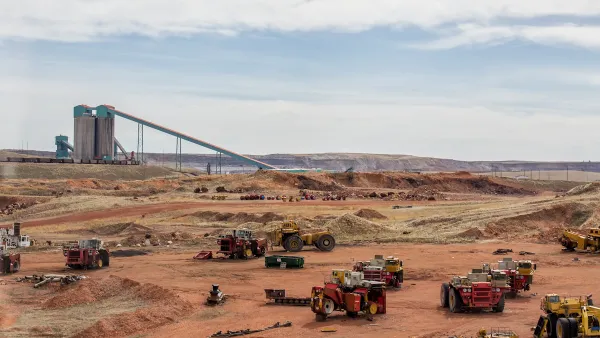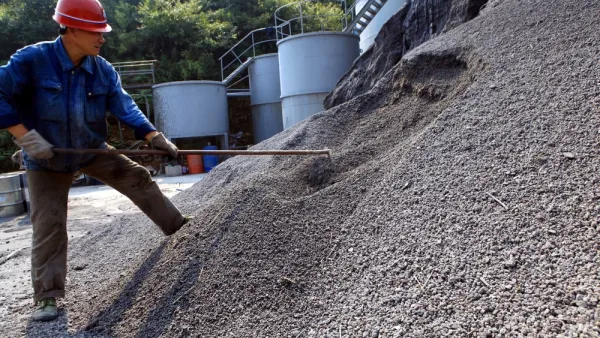No, this post is not about the Russia investigation nor #MeToo, but the state of climate policy in the U.S. after President Trump's first year. Surprisingly, it's not as bad as one might think, no thanks to Trump though.
James Brasuell's blog post on President Trump's State of the Union address on Tuesday dealt many aspects of urban planning, including infrastructure, immigration reform, and dismantling the federal bureaucracy.
Brad Plumer, a reporter on The New York Times's climate team, wrote the first piece for Wednesday's "Climate Fwd:" newsletter, on what an "update on the state of American climate policy after one year of the Trump administration...would it look like."
Yes, Trump has clearly been successful in undoing much of his predecessor's accomplishments on climate policy, including dismantling the clean power plan and withdrawing from the Paris climate agreement, making a clear case for "American Alone" despite his claims to the contrary at the World Economic Forum in Davos on Jan. 26.
See the Times' updated deregulation tracker for the full list, and many here on Planetizen.
But here's the good news for those who believe climate change isn't a hoax.
Mr. Trump hasn’t been able to halt many of the most important trends around the country toward lower emissions. Plenty of states, like California and New York, are still pressing ahead with their own local climate policies. The coal industry, responsible for a quarter of the nation’s emissions, continues to shrink, edged out of the energy market by less expensive natural gas despite Mr. Trump’s efforts to save it.
On top of that, the cost of wind and solar continues to drop rapidly as technology advances. Even after Mr. Trump’s recent tariffs on solar imports, more utilities are turning to renewable energy as the lowest-cost source of new power. Electric vehicles are making inroads. Other countries are still crafting an international climate treaty without the United States.
More good news — U.S. energy-related carbon dioxide emissions fell last year, but the bad news is that this year they will rise, according to the Energy Information Administration.
It’s fair to say that those two broad dynamics — the Trump administration’s regulatory rollbacks and the stubborn march of clean energy — have fought each other to a standstill.
Sadly, this post ends on a pessimistic note. Plumer warns us that "we’ve reached the point on climate change where a holding pattern is no longer sufficient to give us a decent shot at stabilizing global temperatures this century and avoiding irreversible changes to Earth’s weather patterns."
That’s what makes climate change unlike other policy issues. There’s an unforgiving timeline dictated by physics, and the rate of change matters as much as the direction. In that context, even a temporary impasse can be hugely consequential.
FULL STORY: The State of the Climate, One Year Into the Trump Era

Analysis: Cybertruck Fatality Rate Far Exceeds That of Ford Pinto
The Tesla Cybertruck was recalled seven times last year.

National Parks Layoffs Will Cause Communities to Lose Billions
Thousands of essential park workers were laid off this week, just before the busy spring break season.

Retro-silient?: America’s First “Eco-burb,” The Woodlands Turns 50
A master-planned community north of Houston offers lessons on green infrastructure and resilient design, but falls short of its founder’s lofty affordability and walkability goals.

Test News Post 1
This is a summary

Analysis: Cybertruck Fatality Rate Far Exceeds That of Ford Pinto
The Tesla Cybertruck was recalled seven times last year.

Test News Headline 46
Test for the image on the front page.
Urban Design for Planners 1: Software Tools
This six-course series explores essential urban design concepts using open source software and equips planners with the tools they need to participate fully in the urban design process.
Planning for Universal Design
Learn the tools for implementing Universal Design in planning regulations.
EMC Planning Group, Inc.
Planetizen
Planetizen
Mpact (formerly Rail~Volution)
Great Falls Development Authority, Inc.
HUDs Office of Policy Development and Research
NYU Wagner Graduate School of Public Service




























